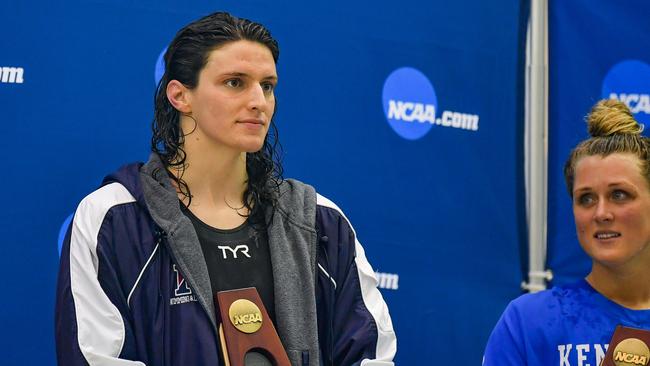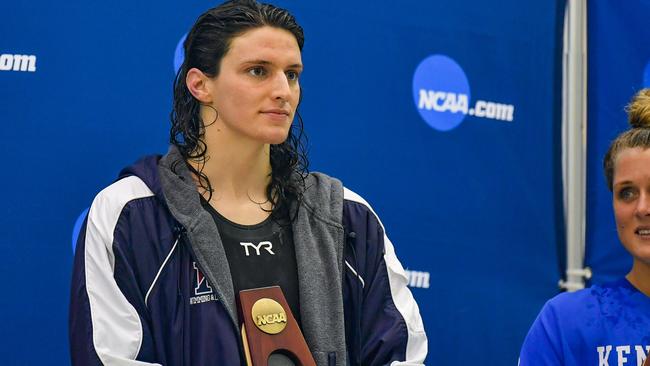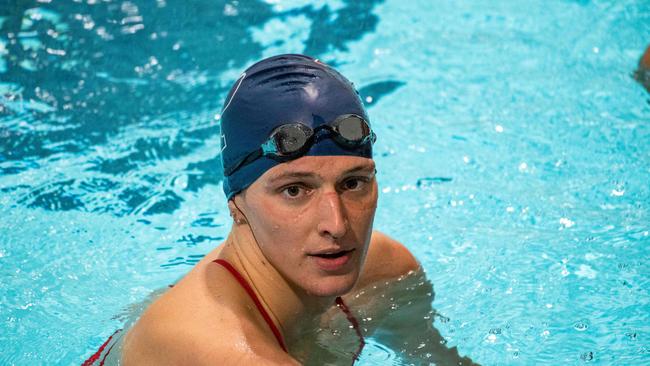Swimming makes historic decision to segregate transgender athletes
Swimming has become the first sport to openly segregate transgender athletes with a historic announcement to set up a new category.

Other Sports
Don't miss out on the headlines from Other Sports. Followed categories will be added to My News.
Swimming intends to become the first sport to set up an “open category” to allow transgender athletes to compete in a separate class at the elite level, Husain Al-Musallam, president of governing body FINA, announced on Monday morning.
The policy will, however, exclude many transgender athletes from women’s elite swimming.
“I do not want any athlete to be told they cannot compete at the highest level,” Al-Musallam told an extraordinary congress of his organisation.
“I will set up a working group to set up an open category at our meets. We will be the first federation to do that.”
He was speaking after FINA unveiled a policy on inclusivity which was then approved by the members.
Brent Nowicki, FINA’s CEO, said the organisation was determined to maintain separate men’s and women’s competition.
He added that FINA “recognises that certain individuals may not be able to compete in the category that best aligns with their legal gender alignment or gender identity.”

Under the rules, he said, male competition would be open to all. But “male-to-female transgender athletes and intersex athletes can only compete as female athletes in FINA competition, or set a world record, if they can prove they have not experienced any element of male puberty.”
There was also an immediate backlash from some sections of the swimming world.
In the debate that followed, Dr Christer Magnusson, a Swedish member of FINA’s medical committee, was among those who complained that the implication was that boys aged as young as 10 would have to decide to start transitioning.
The policy also drew criticism from FINA medical committee member David Gerrard from New Zealand.
“To ask or expect an 11, 12 year old boy to make a decision that will effect the rest of his life is a big ask,” said Gerrard.
The policy received a cautious welcome from American swimmer Alex Walsh after she won the women’s 200m medley at the world championships on Monday morning.
“I’m happy that FINA are... re-evaluating the rules,” she said.
“I am not really sure what the answer is to keep things fair but obviously I hope that everyone is able to compete and as long as they are finding a way to do that then I am happy.”
Last year, the International Olympic Committee announced guidelines but asked federations to produce their own ‘sport-specific’ rule.
FINA set up three expert committees, one medical, one legal and one of athletes, to look at the issue.
The medical committee found that men who transitioned to woman retained advantages.

“Some of the advantages males acquire in puberty are structural and are not lost with hormone suppression,” said Dr Sandra Hunter of the Marquette University in Milwaukee.
“These include larger lungs and hearts, longer bones, bigger feet and hands.”
The legal experts concluded that the policy of excluding most transgender swimmers would be legal.
They were “necessary and proportionate to achieve a legitimate objective,” said London-based barrister James Drake.
For the swimmers, Cate Campbell, an Australian four-time Olympic gold medallist said: “My role is to stand here today and tell trans people we want you to be part of the broader swimming community ... but also to stand here and say... ‘listen to the science’.”
In the United States, swimming has moved to the centre of the debate over transgender women competing against natal women, as Lia Thomas has become the face of the issue.
Thomas, a freestyle specialist, competed for the University of Pennsylvania, men’s team from 2017-19.
After transitioning and undergoing required hormone therapy, she raced on the women’s team this season.
Thomas became the first known transgender athlete to win an elite US collegiate title when she edged Olympic medley silver medallist Emma Weyant in the 500m freestyle in Atlanta in March.
Originally published as Swimming makes historic decision to segregate transgender athletes


